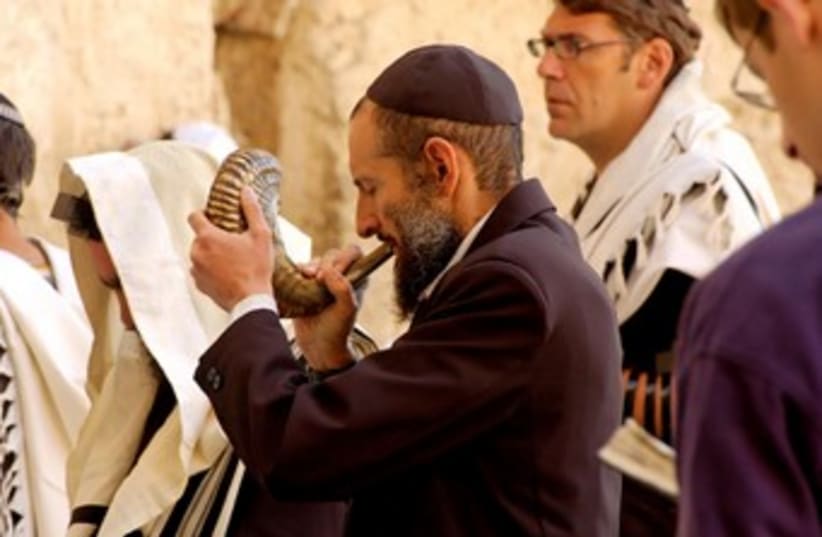“His two months are olive harvest,His two months are planting grain,His two months are late planting;His month is hoeing up flax,His month is harvest of barley, His month is harvest and feasting; His two months are vine-tending, His month is summer fruit.”
The Gezer Calendar clearly delineates twelve months and matches the agricultural progression that occurs in the land of Israel beginning in Tishri, or September.Priests would blow trumpets to announce the Sabbath and the start of festival days. The Feast of Trumpets especially relates to this act: “Speak to the sons of Israel, saying, ‘In the seventh month on the first of the month you shall have a rest, a reminder by blowing of trumpets, a holy convocation. You shall not do any laborious work, but you shall present an offering by fire to the Lord’” (Leviticus 23:24–25; see also Numbers 29:1–6).Today, the blowing of the shofar during Elul—the month prior to Rosh Hashana—traditionally calls the people to self-examination in preparation for the Day of Atonement, or Yom Kippur.Sights and Insights: That time of year again
Mark your calendars this Rosh Hashana to visit Tel Gezer and see a replica of an epigraph discovered in 1908.
